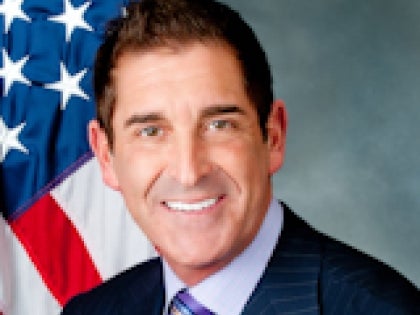
Independent Democratic Conference Minimum Wage Report 2013
Jeffrey D. Klein
February 11, 2013
Introduction
New York’s minimum wage is currently $7.25 an hour, which equals the federal minimum wage. The neighboring states of Connecticut, Vermont, and Massachusetts all have higher minimum wages than New York currently. A person working 40 hours a week for 52 straight weeks would earn $15,080 a year, and many workers making the minimum wage aren’t scheduled to work that many hours in a week or work that many weeks, meaning that they likely make less than $15,000 a year. Given the high cost of living, especially in New York City and surrounding counties, making just $15,000 a year, even for a single person without dependents, means having barely enough to provide basic needs or afford one’s rent.
In April 2012, Senator Jeffrey D. Klein and the Independent Democratic Conference (IDC) issued a report entitled “Creating Jobs and Stimulating New York’s Economy: Now is the Time to Raise New York’s Minimum Wage” setting forth data and analysis supporting the need and urging the passage of a minimum wage hike in New York. The report demonstrated that raising the minimum wage in New York was an economic necessity because it would boost consumer spending and stimulate job creation.[1] The data illustrated that increasing the minimum wage from $7.25 to $8.50 per hour would boost the wages of all affected workers by roughly $950 million and, of this $950 million in additional wages, New Yorkers could have expected an increase in statewide spending of over $600 million.[2] While all New Yorkers would benefit from an increase to the minimum wage, some of New York’s residents would see greater gains than others. Data on New York’s workforce makes it clear that women and minority workers are more likely than male or white workers to hold jobs that pay the minimum wage or slightly above. Since women and minority workers are more likely to hold these lower paying jobs, they also stand to see the greatest benefit from an increase in the minimum wage. Raising the minimum wage is one of the surest ways in which New York can help significantly increase the opportunities and spending power of our women and minority workers.
[1] Analysis by the non-partisan Economic Policy Institute (EPI), February 2012, on behalf of the Office of Senator Jeffrey D. Klein.
[2] Id.
The Time is Now To Enact a Higher Minimum Wage
With the cost of living increasing and the need for economic stimulus still present, the need for an increase in the minimum wage is vital. Previous reports by the IDC have shown that raising the minimum wage will spur additional spending and be a net creator of jobs here in New York. The data also makes it clear that it is women and minority workers who will see the biggest benefit from raising the minimum wage. These New York residents hold a disproportionate number of low wage jobs here in New York. Any increase in the minimum wage will therefore affect them the most. According to our IDC estimates, raising the minimum wage to $8.75 perhour would mean an additional $523 million in direct wages to women here in New York. If we break down the benefits by race and ethnicity, raising the minimum wage to $8.75 per hour would provide New York’s minority workers with a wage increase of $518 million. These are very significant raises that would directly impact the lives of hundreds of thousands of New Yorkers. It is clear that New York has every reason to raise the minimum wage.
Share this Article or Press Release
Newsroom
Go to Newsroom
